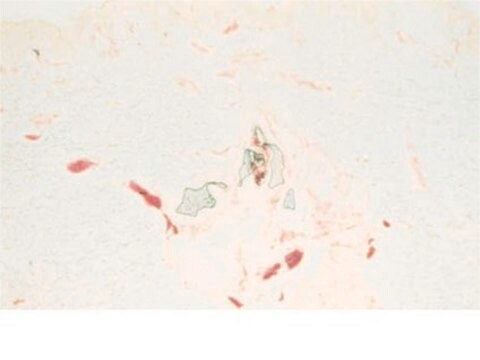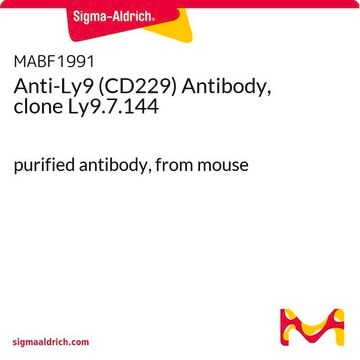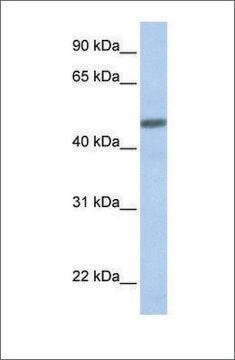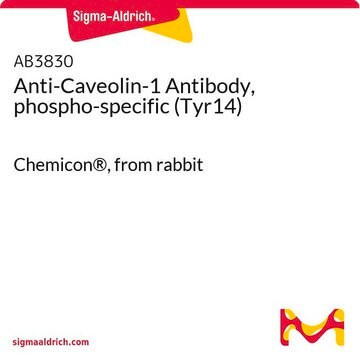05-591-AF647
Anti-Akt/PKB Antibody, PH Domain, clone SKB1, Alexa Fluor™ 647
clone SKB1, from mouse, ALEXA FLUOR™ 647
Synonym(s):
RAC-alpha serine/threonine-protein kinase, PKB, PKB alpha, Protein kinase B, Protein kinase B alpha, Proto-oncogene c-Akt, RAC-PK-alpha
About This Item
Recommended Products
biological source
mouse
Quality Level
conjugate
ALEXA FLUOR™ 647
antibody form
purified antibody
antibody product type
primary antibodies
clone
SKB1, monoclonal
species reactivity
human, mouse, rat
technique(s)
immunocytochemistry: suitable
isotype
IgG
NCBI accession no.
UniProt accession no.
target post-translational modification
unmodified
Gene Information
mouse ... Akt1(11651)
General description
Specificity
Immunogen
Application
The unconjugated antibody (Cat. No. 05-591) is shown to be suitable also for flow cytometry, immunocytochemistry, immunoprecipitation, and Western blotting applications.
Apoptosis & Cancer
Kinases & Phosphatases
Quality
Immunocytochemistry Analysis: A 1:100 dilution of this antibody detected Akt/PKB in HeLa cells.
Target description
Physical form
Storage and Stability
Other Notes
Legal Information
Disclaimer
Not finding the right product?
Try our Product Selector Tool.
Storage Class Code
12 - Non Combustible Liquids
WGK
WGK 2
Flash Point(F)
Not applicable
Flash Point(C)
Not applicable
Certificates of Analysis (COA)
Search for Certificates of Analysis (COA) by entering the products Lot/Batch Number. Lot and Batch Numbers can be found on a product’s label following the words ‘Lot’ or ‘Batch’.
Already Own This Product?
Find documentation for the products that you have recently purchased in the Document Library.
Our team of scientists has experience in all areas of research including Life Science, Material Science, Chemical Synthesis, Chromatography, Analytical and many others.
Contact Technical Service








